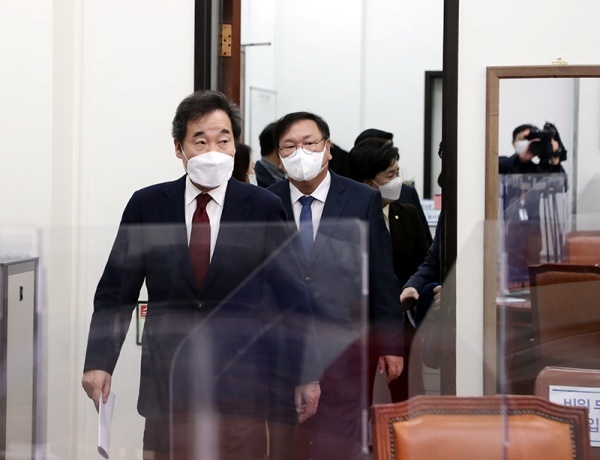[미디어펜=박민규 기자]With Lee Nak-yeon, the Democratic Party’s representative emphasized the overcoming of Corona 19 and the’national integration’, there is a controversy over the’profit sharing system’. While the ruling party and the government were speeding up institutionalization, the business and opposition circles were concerned, saying,’Is it excessively intervening in the market economy?’
The main content is that the profit-sharing system aims to resolve the economic polarization by helping companies that have enjoyed’corona special’ in the Corona 19 situation by sharing profits and helping the victims with greater damage.
Representative Lee said at the Supreme Council on the 11th, “Socio-economic integration can be achieved only when corona polarization is prevented, and socio-economic integration can be achieved to approach people’s integration.”
He then argued, “I think it is worth introducing various ways in which the hierarchical industry that gains a lot of profits contributes to some society and helps the victims with greater damage.”
 |
||
| ▲ Lee Nak-yeon, representative of the Democratic Party of Korea./Photo = Provided by the Democratic Party of Korea | ||
However, as criticisms of’corporate arm twisting’ continued, CEO Lee said, “I hope that the result of autonomous win-win cooperation will be faithful to the’arm length principle’ which supports but does not interfere by providing incentives such as tax benefits and policy fund support.” Emphasis was placed on voluntary participation.
The Democratic Party explained that it will launch the’Post Corona Inequality Relief Task Force (TF)’ and encourage companies to voluntarily participate by providing government incentives. Currently, the target companies are attracting attention from platform companies that have benefited from Corona 19, consumer electronics giants, and financial sectors.
President Moon Jae-in also said at a New Year’s press conference on the 18th, “I think it would be desirable to promote the movement by voluntary movement in the private economy, and the state provides strong incentives for participating companies.” Empowered him.
The opposition is strongly opposed by saying that it is an anti-market idea and that it is an anti-constitutional idea.
Kim Jong-in, chairman of the People’s Power Emergency Response Committee, said, “If you apply (by government finance), there is no need to discuss the benefit-sharing system. In other countries, fiscal intervenes, but in Korea, a benefit-sharing system that cannot be realized immediately without the notion that fiscal should play a certain role. They are having an argument.”
Ho-young Joo also criticized that “it is to redeem profits by twisting the arm of the economic agent”, and Jeju Governor Won Hee-ryong said, “It is the idea of passing over the work that the government should have to do directly to private companies, and another gala that denies the market economy. “Stroke”.
In addition to infringement on shareholders’ property rights, the business community opposes the introduction of the benefit-sharing system for a number of reasons, including △ uncertainty in profit calculation △ concern for executive judicial penalties such as dismissal lawsuits △ equity with foreign companies △ weakening growth incentives.
 |
||
| ▲ Assembly hall of the National Assembly./Photo = Media Pen | ||
Controversy over the benefit-sharing system has existed in the past. Discussions such as the’excessive profit sharing system’ under the Lee Myung-bak administration in 2011 and the’trade profit sharing system’ promoted during the Park Geun-hye administration in 2015, and the’cooperation profit sharing system’, which was one of President Moon’s pledges for the 2018 presidential election, have continued. Failed.
However, it is an observation that the atmosphere is different this time as the Democratic Party occupies a majority of the seats and President Moon expressed sympathy. On the other hand, there are concerns that the benefit-sharing system will act as a burden on companies, and questions are raised about the effectiveness of resolving polarization.
Professor Shinyul of Myongji University said, “Because a company exists for profit, it is not for social activities, so when it comes to profits, it accumulates for when it is bad in the future.” “The government talks about incentives and tax cuts. “There aren’t many companies that theoretically respond to the fact that companies that make a lot of money now share profits,” he pointed out.
“It depends on how companies listen,” he added, adding, “I doubt that fundamentally asking for profit sharing is appropriate for a free market economy.”
[미디어펜=박민규 기자] ▶View other articles
